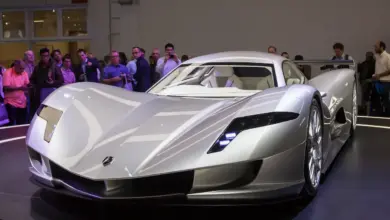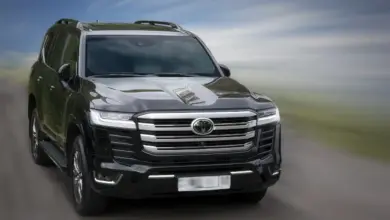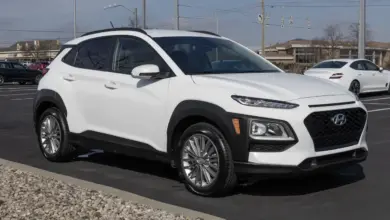Are Electric Vehicles Better For The Environment?
Are Electric Vehicles Better For The Environment Than Petrol?
Mitsubishi Motors company’s analysis revealed that electric cars have a greater environmental impact in Australia than petrol vehicles – until cleaner sources of energy are more widely available.
The debate has raged on for years about the environmental impact to make a battery, let alone charge them each night with a coal power plant. The day to day environmental impact on the environment may be better but building the cars and replacing their batteries every 7-10 years (on average) has a huge impact on the environment. We still don’t know how to recycle them properly.
Analysis by a major car manufacturer has shown that a rapid switch to electric cars in Australia will do more harm than good until there is more clean energy produced locally and worldwide.
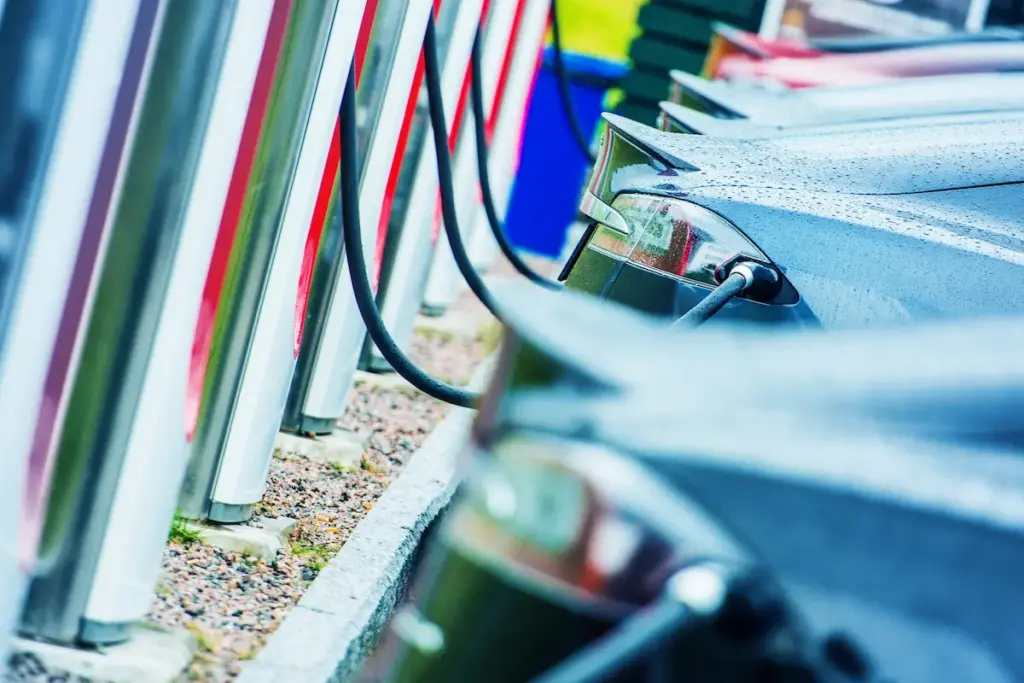
The Japanese auto giant Mitsubishi published data (shown below) showing that, based on the current energy consumption in Australia and its sourcing, electricity cars are worse for our environment than petrol cars.
Even in Japan the switch to electric cars only has a minimal environmental benefit “cradle-to-grave” – when the emissions from the production of vehicles, sourcing of energy, operation of a vehicle over a period of 10 years, and the eventual disposal of a vehicle are added up.
Document from industry shows that electric cars are worse for the environment than petrol vehicles.
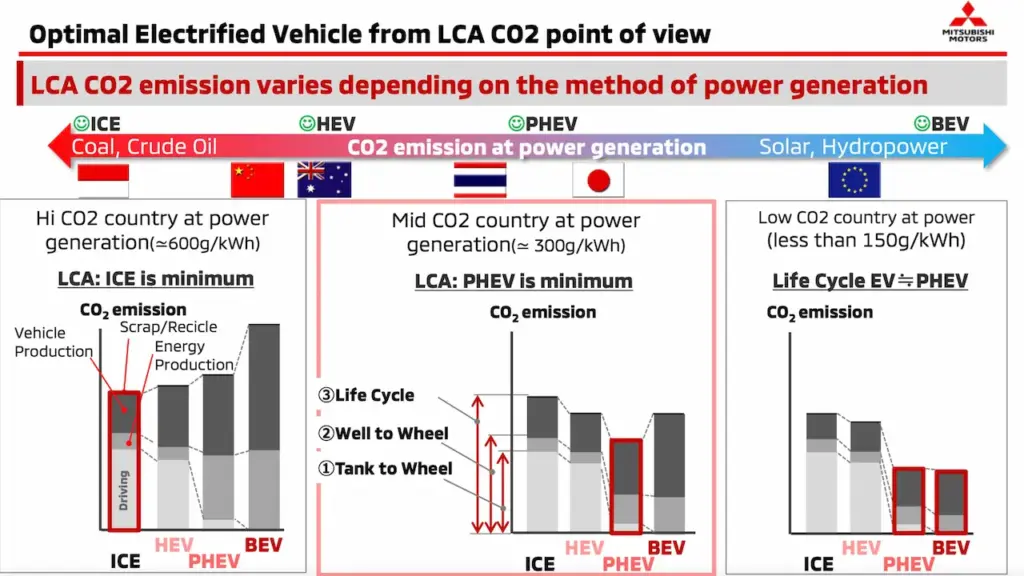
Above: ICE is internal combustion engine (petrol and diesel cars), HEV is hybrid electric vehicle, PHEV is plug-in hybrid-electric vehicle, BEV stands for battery-electric vehicle. Source: Mitsubishi Japan.
Electric vehicles are the only way to reduce emissions across the entire lifecycle of a vehicle. Only Europe has cleaner energy production and has pushed for rapid adoption.
The graphs, which were shown to the Japanese media as part of a 5-year forecast, are in conflict with the narrative put forth by electric-car lobby group.
The findings echo those of the Japanese auto giant Toyota, the world’s biggest automaker in terms of volume. It has advocated for a diverse approach to reduce vehicle emissions rather than relying solely on one solution.
The new information casts doubt on whether electric cars will deliver the promised benefits to the environment.
Even though renewable energy in Australia is on the rise, over 70% of the electricity produced locally comes from coal-fired plants.
The graphs indicate that a rapid rollout in Australia, China and Indonesia of electric cars – before clean-energy ramp-up – would result in worse environmental outcomes compared to maintaining the status quo with petrol vehicles.
Mitsubishi Japan says that this is the reason it is investing more in plug-in hybrids, which it considers a bridge technology between petrol and electrical vehicles.
John Signoriello, former CEO of Mitsubishi Australia and global head of sales and marketing at Mitsubishi Motors told Australian journalists in Japan that “Everyone is talking about Norway”.
Looking for a hybrid car? Read: Most Reliable Hybrid Cars In Australia
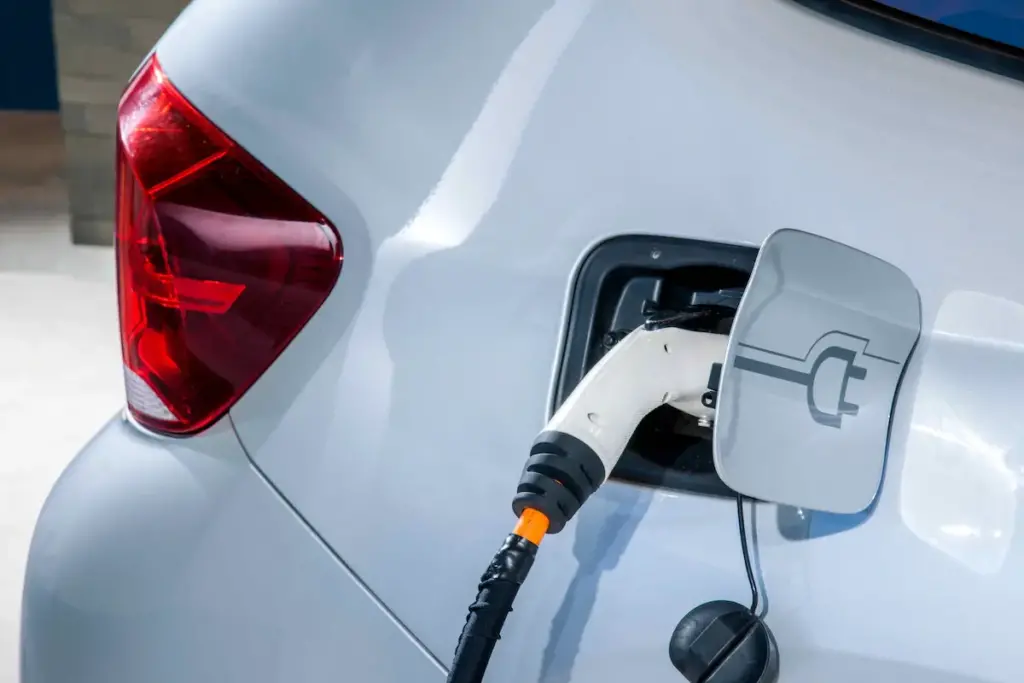
“Norway is almost 100 percent renewable.” Australia has 70% coal.
The problem is not solved by shifting the energy supply from oil refineries to power stations.
Mr Signoriello stated that the environmental benefits of electric cars “really will depend on how fast… Australian energy Infrastructure develops.”
We need to continue to provide cars (in petrol, plug-in hybrid or diesel formats) to our customers as and when they need them.
Mr Signoriello stated that a change in Australia’s energy policy “will dictate when we draw the line in sand” for a larger rollout of electric vehicles.
Mitsubishi Australia has said that hybrid and plug-in technology can still reduce vehicle emissions, while not penalizing motorists who want the peace of mind that comes with a longer driving range.
“We view (plug-in) hybrid technology as a bridge technology, as way to bring people along on their journey but also as way to reduce emissions right away, without any demands on infrastructure or on the grid (electricity),” said Mr Signoriello.
“That does not mean we shouldn’t fix the (electricity grid), make it clean, get more charging stations, or build better infrastructure.
“But the harsh reality is that we are in a very difficult situation. It will take many years and billions of dollars to upgrade Australia’s energy network to cleaner sources.
“We already have a plug-in hybrid solution that reduces vehicle emissions by 84%.”
The Mitsubishi executive stated that the increasing cost of rare minerals and earths was a major barrier to affordable electric cars.
Signoriello said that if you consider the cost of battery technology, these cars will be significantly more expensive (than petrol-powered vehicles).
The majority of electric car demand is for higher-grade specifications. These are typically early adopters, people with high incomes, and wealthy individuals.
Oliver Mann, former Hyundai Australia executive and general manager of Mitsubishi Australia’s product strategy, said that the energy grid would need to be upgraded to cope with the increased load from the sales of electric vehicles.
Looking for a Ford Ranger? Read: Ford Ranger Review And Road Test
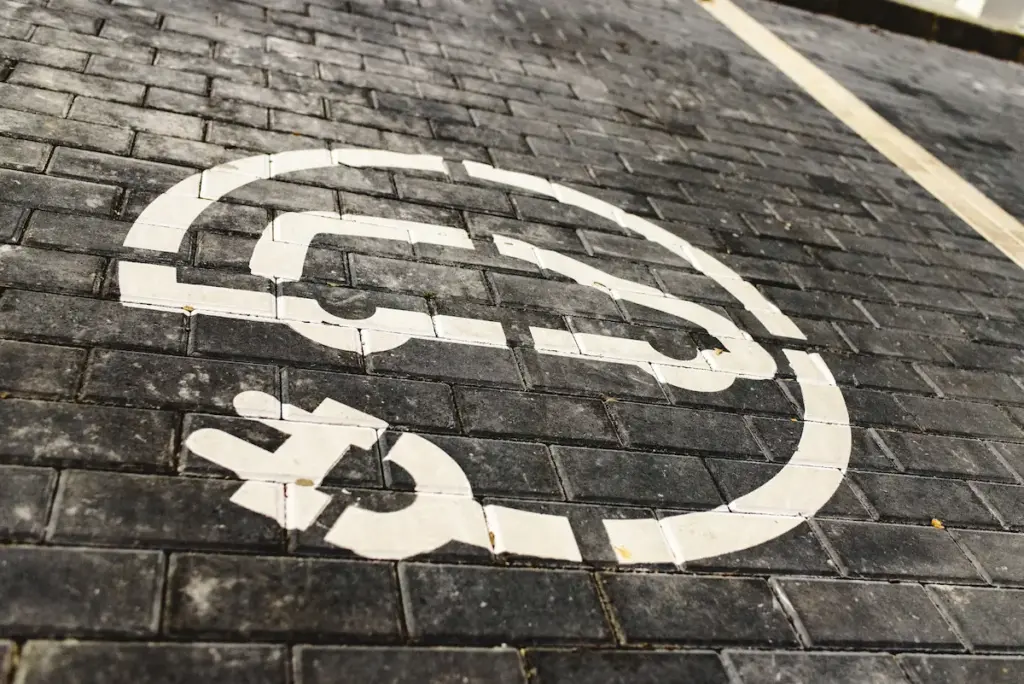
Mr Mann said that the grid (electricity) is already overloaded trying to meet demand.
Even with smart charging arrangements, it’s estimated that electric vehicles could add 30% to this level of demand.
“So grid security (electricity) is the first priority, and plug-ins hybrids allow us to electrify mobility without adding additional strain on the grid.”
Mr Mann said that hybrids and plug in hybrids would help to reduce vehicle emissions while “allowing (the electricity grid) to catch up with the demand” because the major infrastructure upgrades required to support the recharging of electric cars on a large scale cannot be done in a year. It will take 10-20 years to achieve.
Enjoyed this article? Also read: South Australia To Have A Special Licence For Ultra High Powered Vehicles

